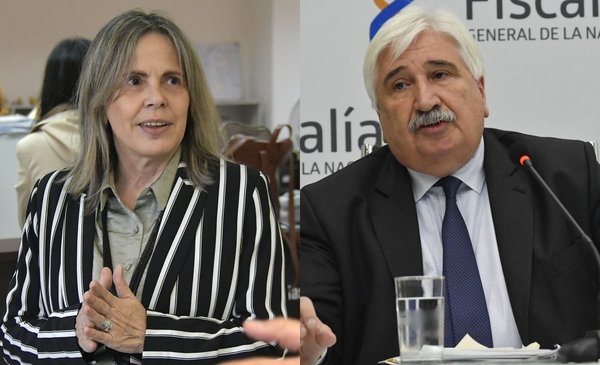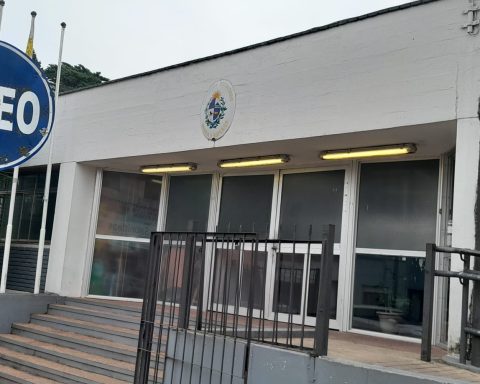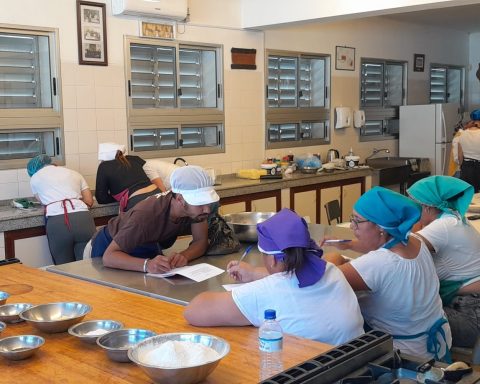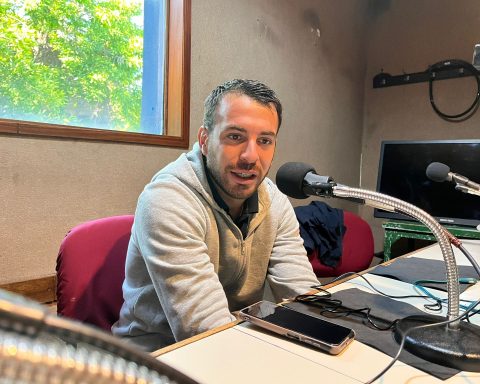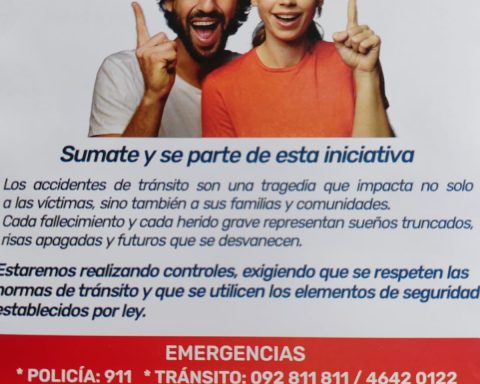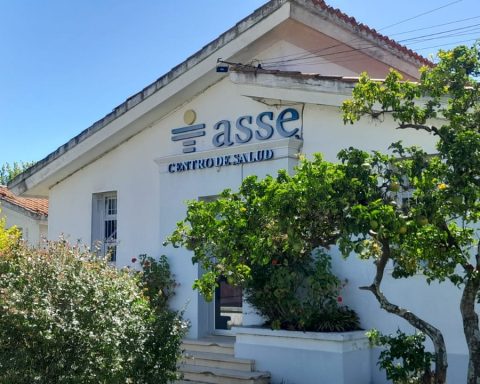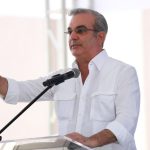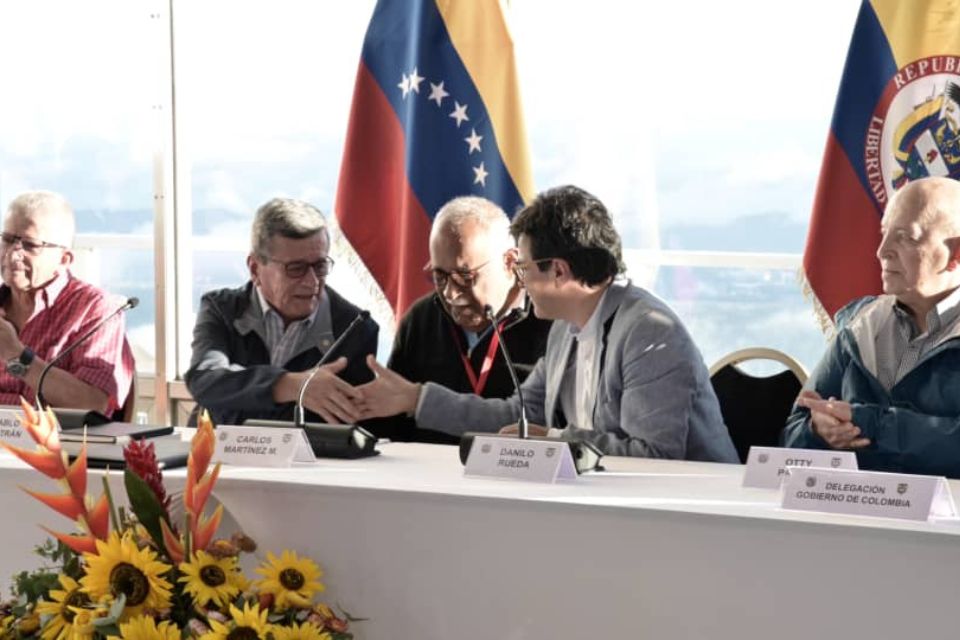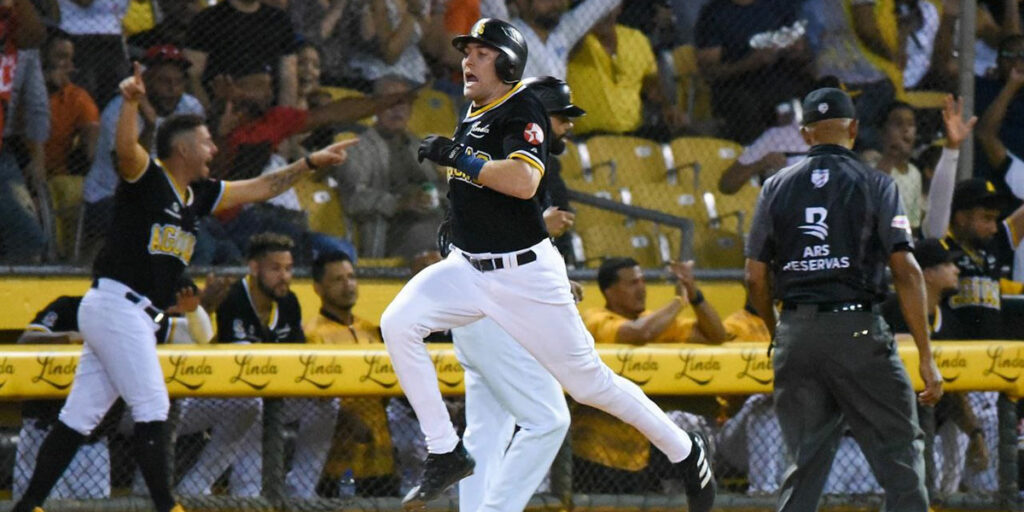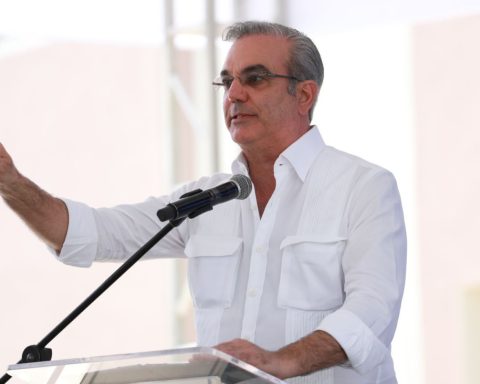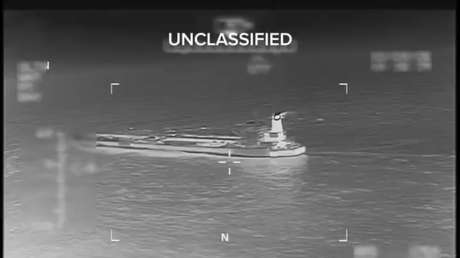This Tuesday a decision that seemed announced was made official. Since Saturday, the Court prosecutor, Juan Gómez, had responded to the statements of the prosecutor Gabriela Fossati that “it would be irresponsible” to remove her from the Astesiano case. Both Gomez and the president, Luis Lacalle Pou, agreed that the best thing is that Fossati, who is the one who started the investigation for the adulteration of passports involving Alejandro Astesiano, who was in charge of presidential custody, finished it.
The responsibilities of Lacalle Pou and Gómez are different. The president, he clarified, was only expressing his personal opinion. Gómez had in his hands the possibility of removing Fossati from the case if he considered it appropriate. In a speech that was strictly technical, the court prosecutor argued that there was no formal request from the prosecutor to withdraw from the case.
Fossati asked for a change in the prosecutor’s office based on what she understood to be a promise that Gómez had made to her: in November she would head a Complex Crimes prosecutor’s office. Currently, she works in Flagrancy, which —broadly speaking— deals with theft, robbery, petty fraud, among others. As the date of her alleged transfer approached, Gómez decided that she should stay where she is until the Astesiano case is finished, which caused the prosecutor’s annoyance.
Now, the prosecutor bases her insistence on changing prosecutors on the density of the investigation. In Flagrancy, she is in charge of working on all crimes except for homicides, sexual, economic and drug-related crimes. For this reason, it also has more cases to deal with, the average per prosecutor’s office is about 500. Once a month, flagrante delicto prosecutors have to go on duty for a week and during that period all crimes that occur in a certain area (one of the four operational zones of Montevideo) it is up to that prosecutor’s office on duty.
Although this Monday Fossati had once again assumed the responsibilities that the shift means, Gómez announced in a conference that he would exonerate her from the corresponding one for this month and the next. In Complex Crimes, he would not have to deal with those minor crimes that require frequent interventions – large formalities, arrest warrants, renewal of precautionary measures.
Continuing to investigate the Astesiano case in the context in which it finds itself, in Fossati’s eyes, would harm the investigation because it would not allow him to dedicate enough time to the cause, which has proven to have several ramifications. In the letter he sent to the Court prosecutor, he asked that she be transferred to the case, and stressed that the investigation must be handled in that orbit so that it reaches a successful conclusion. as she knew The Observer, He expanded on his arguments as to why the investigation should not remain in flagrancy, but he also made a historical compilation of the work contacts he had with him and the conversations they had this year about his transfer to Complex Crimes.
Gómez did not give a specific answer as to why he denied this request, beyond citing the delay in the transfer to “internal prosecutorial issues” and that it is not as easy as it seems to pass a case from one prosecutor’s office to another – there are stipulated criteria for authorize transfers. He emphasized that he did not ask to be removed from the case, as he had publicly disclosed.
Although the Court prosecutor had already advanced his position since the weekend, this Tuesday the president expressed a coincident position: “If a prosecutor started a case, why would she leave? If she has all the elements and she knows where she is going, she (…) There can be no doubt as to whether a prosecutor was changed or not (…) If not, the suspicions begin. ‘They changed it. Why did they change it?'”
Prosecutor for Flagrancy or Complex Crimes?
The Court prosecutor insisted that the crimes for which the investigation has been formalized before the Justice “have nothing to do with the powers of the prosecution of economic crimes” and complex, since the main crime is the suppression of civil status.
The other two crimes charged were criminal association and influence peddling. In turn, Fossati said at the hearing that he is investigating them for money laundering, which is an economic crime. Asked for this, Gómez replied that it is not in those terms that she formalized the investigation before the Justice. “It is a possible future classification. We are talking about today. If these classifications are given, it will be seen if there is a request for a possible transfer, very possible, of an investigation or of a procedure by another prosecutor,” she explained.
Although it is true that Fossati did not ask for his removal from the case and that if he understood that the complexity of the investigation exceeded the capabilities he has in Flagrancy, he could have asked for the transfer to another prosecutor beforehand, it is not true, as Gómez says, that do not change prosecutors in the middle of investigations. One of his main arguments was that “in the middle of the river you don’t change horses”.
In fact, it happens frequently when a holder is transferred from one prosecutor’s office to another. In terms of highly complex cases, there was an example last week: Ricardo Lackner will leave the Complex Crimes prosecutor’s office and the case for the escape of Rocco Morabito from Cárcel Central will be followed by another prosecutor.
General Prosecutor’s Office with a tense climate that borders on personal grudges
In the Prosecutor’s Office, where the media coverage of internal issues is frowned upon, Fossati’s decision to express his anger at the delay in his transfer in the media was seen as an “adolescent” attitude and detrimental to the investigation. For her part, the prosecutor indicated on her Twitter account this Sunday that she would work to get “the best context for the proper development of an investigation” that she is leading.
The relationship between Fossati and Gómez was good, in fact it was he who chose her to fill that role whose occupation she now postpones in Complex Crimes. She was a staunch enemy of the management of Jorge Díaz – with whom she had several crosses – but she valued Gómez’s honesty and his journey within the Prosecutor’s Office. This weekend, in dialogue with Montevideo Portal, she regretted her lack of support.
“I think that the importance of the investigation deserves that it be assigned to a prosecutor who has real support from the hierarchy,” was the phrase that Fossati used on Saturday and that angered Gómez.
Much of his speech this Tuesday was dedicated to demonstrating that the Attorney General’s Office has expressed its support for the investigation in various ways. On that occasion, he mentioned that he had made the team of the International Context and Cooperation Unit available to her and announced that he would exonerate her from more shifts.
